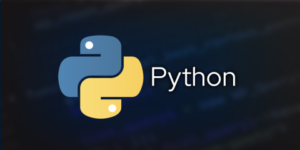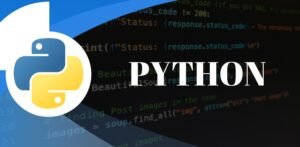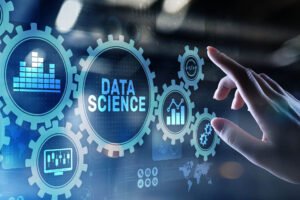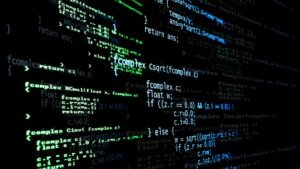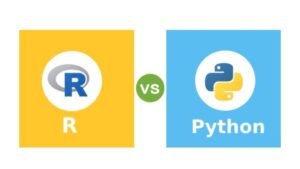From social media posts to e-commerce purchase transactions, from digital videos and images in smartphones to sensors in malls – today’s world generates 2.5 trillion bytes of data every day.
Organizations inundated with huge amounts of unstructured raw data, or big data, are using a variety of scientific methods to extract useful information from big data.
The study of big data to generate business intelligence is known as data science. Data science results, developed with algorithms, processes and systems, help companies to open up new markets and demographics, measure effectiveness and reduce their costs.
There is no doubt that data science is playing an important role in the success of any business today. Despite the booming demand, the American management consultancy McKinsey predicts a full 50% gap in the supply of qualified data science experts compared to the growing need for data scientists.
The global shortage in talent supply offers newcomers, graduates and software engineers a unique opportunity for a career change in data science. Data science is ready to revolutionize careers, including yours. Here you will find some guidance for a smooth transition to data science.
The main step in any job search is to identify the types of jobs that you should be looking for. In data science, this gets complicated quickly for several reasons:
- There is no single definition of “data scientist” or “data analyst” that every company can agree on, so different roles with the same title may need different skills.
- There are a variety of other commonly used data science job titles that you may not find if you just searched for the data analyst or data scientist roles.
For sure we are not able to cover all of the possible job titles a company might use, but we can talk about some of the key roles in the data science universe.
While data analysts, data scientists, and data engineers describe the various roles data professionals can play in an organization, there are a variety of other job titles that directly relate to those roles or otherwise imply the use of data science skills. There are many best data science courses available that can help to get a job in data science. In the following, we take a brief look at the job titles that you should consider when looking for a job.
Machine Learning Engineer
For some of the companies, that title simply means a data scientist who specializes in machine learning. But for some other companies, the “machine learning engineer” is more of a software engineering role in which the analysis of a data scientist is converted into usable software.
Quantitative Analyst
Quantitative analysts are also called “quants,” use advanced statistical analysis to answer questions and make predictions about finances and risk. Most of the programming skills in data science are immensely useful for quantitative analysis and a solid statistical background in the field is essential.
Data Warehouse Architect
This is essentially a specialty or subset of data engineering for people who want to be incharge of a company’s data storage systems. You can get the Knowledge of SQL by enrolling into many best data science courses, certainly important for such a role. Although you will also require other technical skills that vary depending on the employer’s technology stack.
Business Intelligence Analyst
A business analyst is actually a data analyst who focuses on analyzing the market and business trends. This position sometimes needs familiarity with software-based data analysis tools (such as Microsoft Power BI), but a lot of data science knowledge is also important to positions as a business intelligence analyst, and many of these positions also require knowledge of Python or R programming skill sets.
Statistician
“Statisticians” were called data scientists before the term “data scientists” existed. The skills required are a solid understanding of probabilities and statistics. Programming skills, especially in a statistics-oriented language like R, are likely to come in handy as well.
Business Analyst
“Business Analyst” is a fairly generic job title that applies to many roles, but in its broadest sense a business analyst helps an organization answer questions and solve problems. This does not necessarily need knowledge of data science or even some positions as a business analyst.
Systems Analyst
Systems analysts are often tasked with identifying organizational problems and then planning and monitoring the changes or new systems needed to correct them. This basically requires programming and data analysis skills. Also, statistical knowledge is often required to identify problematic trends and quantify what works well and what doesn’t in a company’s technical systems.
Marketing Analyst
Marketing analysts review sales and marketing data to evaluate and improve the effectiveness of marketing campaigns. Especially in companies that sell digital products, these analysts have access to huge amounts of data in the digital age. Data must have science and statistics if many other candidates are to be superior if they also have adequate marketing skills.
Operations Analyst
Operations analysts basically have the task of examining and optimizing a company’s internal processes. Certain jobs and salaries can vary widely, and not all operations analyst positions use data literacy, but in most of the cases it is important to cleanse, analyze, and visualize the data to determine which business systems are working properly and which areas could require improvement.
Other Data Science Positions
When looking for a job on online job sites, keep in mind that companies use all kinds of titles and that you can customize any of the above titles based on your experience and choice with words like “junior,” “associate,” “senior,” “lead” in front of them.
To get the complete data science training and the skills for the above job titles and for those who may not even know a career in data science, the Data Science Bootcamp is a perfect choice.
Finally, remember that performance or skill-based hiring is slowly overriding level-based hiring. Get the specialized data science training you need in an online data science Bootcamp?









